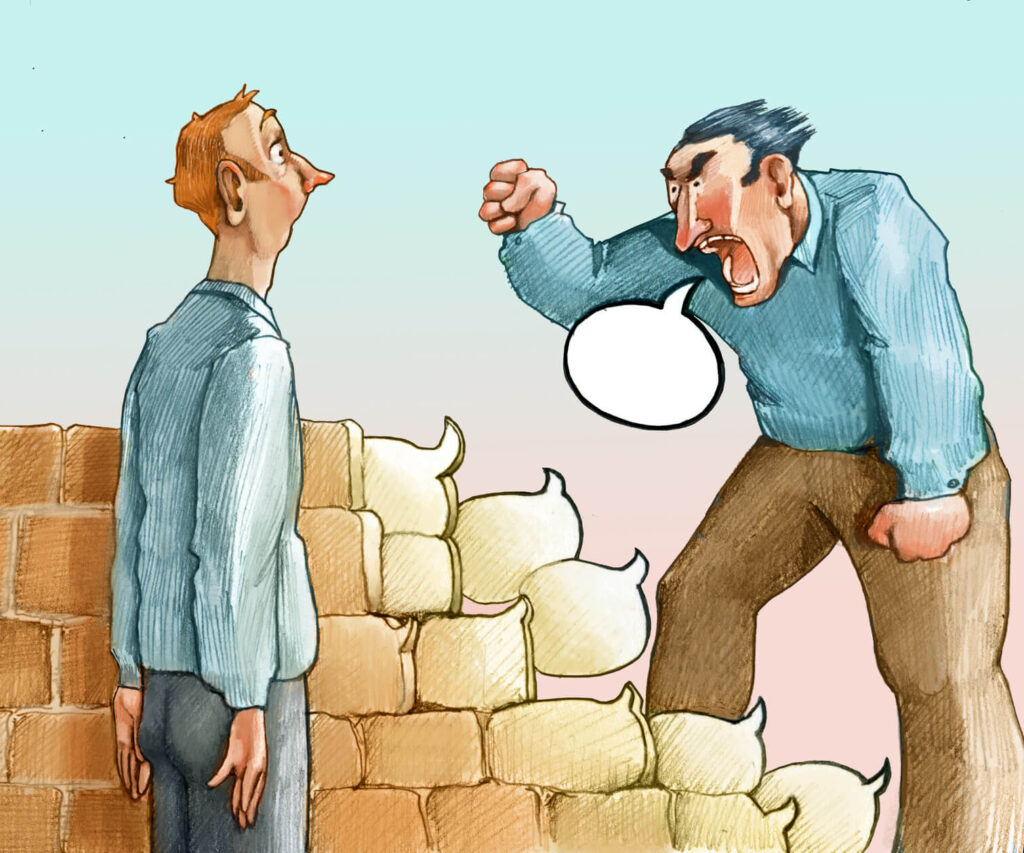Learn practical strategies to handle toxic individuals and preserve your mental well-being in challenging environments

Encountering toxic people is an unfortunate reality in life. Whether at work, among friends, or even within family circles, toxic individuals can drain our energy, harm our mental health, and make us question our self-worth. Learning how to deal with these people effectively can protect your mental health and help you maintain a balanced, positive mindset. In this article, we’ll explore key strategies for handling toxic people and discuss how to safeguard your well-being.
Understanding Toxic Behavior: Recognizing the Signs
Toxic individuals often exhibit certain patterns of behavior that can be damaging to others. Recognizing these signs can help you identify toxicity early and respond more effectively.
1. Identifying Toxic Traits
Toxic behavior can take various forms, but some common traits include:
- Constant Criticism: Individuals who habitually criticize others, often without constructive feedback, can erode self-esteem and create an environment of negativity.
- Manipulation: Toxic people may manipulate situations or emotions to serve their own needs, often disregarding the well-being of others.
- Blame-Shifting: Refusing to take accountability and instead blaming others for their mistakes is a hallmark of toxic behavior.
- Narcissism: Self-centered individuals with a lack of empathy can make others feel inferior or unimportant.
2. The Impact of Toxic People on Mental Health
Engaging with toxic individuals can lead to stress, anxiety, and even depression. The constant strain of negativity can have long-term effects on self-esteem, confidence, and overall happiness. Recognizing these impacts can help you understand why it’s essential to address these relationships head-on.

Strategies for Dealing with Toxic People
1. Set Clear Boundaries
Boundaries are essential when dealing with toxic people. Establishing firm boundaries lets others know what behavior you will and will not accept, and it protects your mental and emotional space.
Tips for Setting Boundaries
- Be Direct: When addressing a toxic person, be clear and concise about your limits. For example, you might say, “I’m not comfortable discussing this topic,” or “I need to take a break from this conversation.”
- Stick to Your Boundaries: Toxic people may try to push or ignore boundaries, so it’s essential to stay consistent and firm.
- Limit Contact: In situations where cutting ties isn’t an option, like at work or family gatherings, limit the amount of time you spend with the toxic person.
2. Practice Emotional Detachment
Emotional detachment means staying unaffected by the negativity or manipulative behavior of others. By practicing emotional detachment, you can shield yourself from the toxic energy that might otherwise impact your well-being.
Techniques for Emotional Detachment
- Focus on Breathing: Practicing deep, mindful breathing can help you remain calm during interactions with toxic individuals.
- Visualize a Barrier: Imagine a mental barrier between you and the toxic person’s negativity, preventing their words or actions from affecting you.
- Stay Neutral: Instead of reacting emotionally, try responding calmly and neutrally to limit engagement with their negativity.
3. Limit Your Reactions
Toxic people often thrive on conflict, drama, or control. By limiting your emotional reactions, you deny them the satisfaction of manipulating or influencing your feelings.
How to Control Your Reactions
- Pause Before Responding: Take a moment to assess your emotions before you respond. This will help you avoid saying something in the heat of the moment.
- Use Short Responses: Avoid lengthy explanations or justifications. Keep your responses short and factual.
- Stay Focused on Solutions: Rather than getting drawn into arguments, shift the focus to solutions, especially in professional settings.
4. Use the “Gray Rock” Method
The Gray Rock Method involves making yourself as uninteresting as possible to toxic people. This approach is particularly useful for people who thrive on drama, as it discourages them from engaging with you.
How to Implement the Gray Rock Method
- Keep Interactions Boring: Provide minimal responses and avoid engaging in topics that may spark drama.
- Avoid Personal Topics: Stick to neutral, uninteresting subjects, especially if the toxic person is prone to use personal information against you.
- Maintain Emotional Control: Remain calm and show little to no emotional response to their behavior.
5. Surround Yourself with Supportive People
Counteracting the effects of toxic individuals requires a strong support network. Surrounding yourself with positive, encouraging people can help you stay grounded and resilient.
Building a Support Network
- Connect with Friends: Spend time with friends who make you feel valued and understood.
- Join Supportive Communities: Online or in-person support groups offer a space to share experiences and gain insights on handling toxic situations.
- Seek Professional Help: If a toxic relationship is severely affecting your mental health, consider talking to a therapist who can provide guidance and support.

Protecting Your Mental Health from Toxic Relationships
1. Prioritize Self-Care
Self-care is essential for maintaining mental health, especially when dealing with difficult people. Taking time to care for yourself helps to recharge your energy and build resilience.
Self-Care Practices to Support Mental Health
- Engage in Physical Activity: Exercise reduces stress and releases endorphins, promoting a positive mood.
- Practice Mindfulness: Techniques like meditation and mindfulness help you remain present and lessen the impact of stress.
- Set Time for Hobbies: Engage in activities you love to boost your mood and provide a healthy escape.
2. Focus on Personal Growth
Rather than letting toxic individuals bring you down, focus on your growth and self-improvement. Personal growth not only builds resilience but also fosters confidence, making it easier to handle negativity.
Steps for Personal Growth
- Identify Your Goals: Focus on setting and achieving personal goals that contribute to your happiness.
- Reflect on Your Strengths: Regularly remind yourself of your strengths and accomplishments to counteract negativity.
- Learn from Experience: Toxic interactions can be challenging, but they can also teach valuable lessons about resilience and self-worth.
3. Seek Therapy or Counseling
Sometimes, dealing with toxic individuals can have a profound impact on your mental health. Seeking professional support can provide you with tools and strategies to manage the emotional toll of these relationships.
When to Consider Therapy
- Chronic Stress or Anxiety: If toxic relationships cause you consistent stress or anxiety, therapy can help you process these feelings.
- Difficulty Setting Boundaries: A therapist can help you learn effective boundary-setting techniques tailored to your situation.
- Need for Objective Support: Therapists offer a neutral, supportive environment to explore your experiences without judgment.
4. Practice Positive Affirmations and Self-Compassion
Regularly practicing affirmations and self-compassion builds a resilient self-image and counteracts the negative effects of toxic people.
Examples of Positive Affirmations
- “I am in control of my emotions and reactions.”
- “I am worthy of respect and kindness.”
- “I am focused on my well-being and personal growth.”

Conclusion: Take Charge of Your Mental Health and Well-being
Dealing with toxic people can be challenging, but protecting your mental health is essential. By recognizing toxic behaviors, setting boundaries, and surrounding yourself with positive support, you can maintain control over your emotional well-being. Remember, prioritizing self-care and personal growth allows you to strengthen your resilience, ensuring that you’re better equipped to handle toxic individuals without compromising your happiness. Start implementing these strategies today and observe how empowering it can be to protect your mental health and take charge of your peace.
How to deal with toxic people and protect your mental health Mental health care, Proven Tactics to Enhance Your Mental Health and Wellbeing
https://www.charliehealth.com/post/how-to-deal-with-toxic-people




Pingback: Singles Are Happy: Why Life After 40 Is Even Better - VarietyWeb